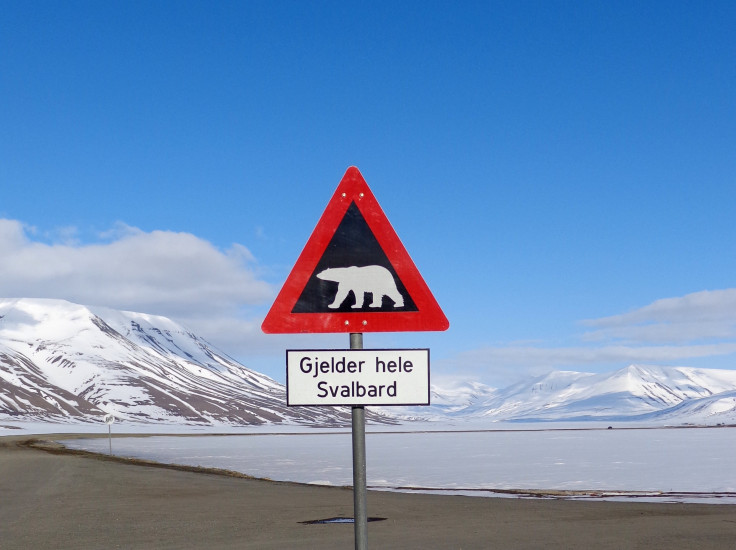Polar Bears Unlikely To Survive On Low-Fat Terrestrial Diet: Study

The loss of ice in the Arctic, which recently recorded its lowest annual maximum, is not only contributing to the rise in sea levels, it is also destroying the frozen habitat of polar bears -- forcing them on the land to supplement their traditional diet of marine animals. However, according to study published in the latest issue of the journal Frontiers in Ecology and the Environment, this terrestrial diet, which consists largely of berries, birds and eggs, is not enough to replace their current diet of fat-rich marine mammals such as seals.
“In the regions where terrestrial feeding by polar bears has been documented, polar bear body condition and survival rates have declined,” Karyn Rode, a wildlife biologist from the U.S. Geological Survey and lead author of the paper, said in a statement. “The reports of terrestrial feeding by polar bears provide important insights into the ecology of bears on land. In this paper, we tried to put those observations into a broader context.”
Scientists had previously theorized that as the sea ice around the Arctic declines, polar bears might adapt to the changing environment and learn to hunt on land and survive on a diet of goose eggs, berries and plants. However, the latest study contradicts these theories, suggesting that the bears, which consume the highest lipid diet of any species, cannot receive the needed fat from the high-protein, low-fat animals and vegetation found in the terrestrial environment.
“Although some polar bears may eat terrestrial foods, there is no evidence the behavior is widespread,” Rode said in the statement. According to the study, fewer than 30 polar bears have been observed eating bird eggs. “There has been a fair bit of publicity about polar bears consuming bird eggs. However, this behavior is not yet common, and is unlikely to have population-level impacts on trends in body condition and survival,” she added.
Steven Amstrup, a co-author of the paper, also said that these sightings did not prove that the polar bears were successfully adapting to life on an iceless land.
“There is a big difference between the fact of eating something and the nutritional value of that eating. Think, for example of the difference between you eating a head of lettuce and a steak. Both may fill you up, but the energy density and overall nutritional contributions are very different,” Amstrup told the Guardian.
Moreover, according to the study, if the polar bears do manage to find enough bird eggs to sustain themselves, it would be devastating for other species. Given the bears’ dietary needs, they may eat so many bird eggs that the Arctic seabird population gets completely decimated.
© Copyright IBTimes 2024. All rights reserved.






















